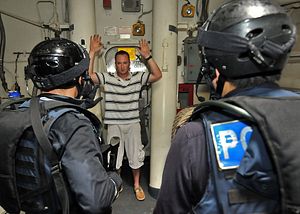On April 16, Singapore kicked off its inaugural East Asia Summit Symposium on Religious Rehabilitation and Social Integration, a counterterrorism meeting designed to share best practices — including Singapore’s own comprehensive approach — with like-minded states.
Speaking at the symposium, the city-state’s deputy prime minister, Teo Chee Hean, argued that the terrorism threat has only worsened following the 9/11 attacks particularly with the rise and spread of the Islamic State in Iraq and Syria (ISIS). Teo expressed concern about the return of radicalized ISIS fighters to their home countries and the rise of “lone-wolf terrorist attacks” conducted by individuals influenced by ideology through social media.
“Being lone wolves, their identities may not be easily uncovered and they can strike at any time, using any means at their disposal,” he said, according to the Singapore newspaper Today.
Teo emphasized that efforts needed to be taken to counter the ideology of groups like ISIS as well as to reintegrate rehabilitated terrorists into society.
Singapore officials have been stressing the need for these various elements as part of a comprehensive approach to tackling terrorism. Speaking at the White House Summit on Countering Violent Extremism in Washington, D.C. in February, Senior Minister of State for Home Affairs and Foreign Affairs Masagos Zulkifli stressed the key role of the Muslim community and religious organizations in such efforts, including the Religious Rehabilitation Group, a non-governmental body of religious scholars that helps counter extremist ideologies through counseling, publications and speeches.
“Fortunately, a long spell of peace and religious harmony has brought the community out on their own volition, to help tackle this problem, and to nip the issue in the bud,” Masagos said. “Their participation has complemented security action by Singapore authorities.”
As The Diplomat reported earlier, the symposium itself is part of Singapore’s contribution to share best practices with like-minded countries in Southeast Asia and beyond on how to address the terrorism threat. The two-day meeting, held from April 16-17, was organized by the International Center for Political Violence and Terrorism Research (ICPVTR) of the S. Rajaratnam School of International Studies and covers a broad range of topics related to building a resilient community against radicalism and helping to reintegrate rehabilitated terrorists into society.
In an interview with The Straits Times ahead of the conference, the head of ICPVTR Rohan Gunaratna said that the symposium, which will be the biggest event of its kind held in the city-state, would bring together over 500 delegates, including top counter-terrorism officials from Indonesia and Malaysia and General John Allen, the U.S. special presidential envoy for the Global Coalition to Counter ISIL. He said the symposium would give Singapore a chance to showcase its “full-spectrum response” to countering terrorism, which integrates hard power – including arresting terrorists – with soft power approaches like de-radicalization and rehabilitation.
“Singapore is sharing its soft-power capabilities with others. This is in contrast to the Western approach to fighting terrorism using hard power – meaning to catch and kill terrorists, and to disrupt terrorist organizations,” Gunaratna said.

































